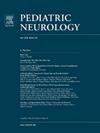医疗补助在杜氏肌萎缩症治疗中的重要作用:呼吁保护弱势群体
IF 2.1
3区 医学
Q2 CLINICAL NEUROLOGY
引用次数: 0
摘要
杜氏肌营养不良症(DMD)是最常见的致死性小儿神经肌肉疾病,可导致过早发病和死亡。多学科护理和新疗法延长了生命的数量和质量,因此许多家庭仍然依赖医疗补助来获得标准的护理。拟议中的医疗补助资金削减将不成比例地损害患有包括DMD在内的复杂疾病的儿童,危及他们获得基本服务和专业护理的机会。患有DMD的儿童依赖于综合的多学科护理,包括神经病学、心脏病学、肺病学、内分泌学、精神病学和康复专家。医疗补助使患者能够获得延长生命的治疗,包括(但不限于)心脏监测、通气支持、多学科类固醇并发症管理,以及促进独立性和尊严的活动和可及性设备。即使是拥有私人保险的家庭也经常依靠医疗补助来弥补覆盖范围的差距。削减医疗补助计划将迫使人们做出站不住脚的决定:家庭可能不得不放弃关键的药物、关键的心脏扫描或必要的活动设备。这些选择将对现实世界造成毁灭性的后果,导致功能丧失、疾病加速进展和过早死亡。MethodsNot适用。ResultsNot适用。结论:作为马萨诸塞大学杜兴项目的神经肌肉专家,我们亲眼看到医疗补助不是一种奢侈品;它是给家庭带来美好未来希望的基础。患有DMD的儿童作为受保护的弱势群体,无法为自己辩护。我们必须为他们发声。削减医疗补助不仅仅是一个财政决定;这是一个道德上的决定,会带来改变人生的后果。我们敦促政策制定者保护医疗补助计划,保护患有DMD的儿童的未来。本文章由计算机程序翻译,如有差异,请以英文原文为准。
The Essential Role of Medicaid in Duchenne Muscular Dystrophy Care: A Call to Protect Vulnerable Populations
Background
Duchenne muscular dystrophy (DMD) is the most common fatal pediatric neuromuscular disorder, resulting in premature morbidity and mortality. Multidisciplinary care and new therapies have prolonged quantity and quality of life, for which many families remain dependent on Medicaid for access to standards of care. Proposed Medicaid funding cuts would disproportionately harm children with complex medical conditions, including DMD, jeopardizing their access to essential services and specialized care. Children with DMD rely on comprehensive multidisciplinary care, including neurology, cardiology, pulmonology, endocrinology, psychiatry, and rehabilitation specialists. Medicaid enables access to life-extending therapies, including (but not limited to) cardiac monitoring, ventilatory support, multidisciplinary steroid complications management, and mobility and accessibility devices to promote independence and dignity. Even families with private insurance often rely on Medicaid to bridge coverage gaps. Cutting Medicaid would force untenable decisions: families may have to forgo critical medications, critical heart scans, or essential mobility equipment. These choices would have devastating real-world consequences, resulting in loss of function, accelerated disease progression, and earlier deaths.
Methods
Not applicable.
Results
Not applicable.
Conclusion
As neuromuscular specialists at the UMass Duchenne Program, we see firsthand that Medicaid is not a luxury; it is the foundation that gives families hope for a better future. Children with DMD, as a protected and vulnerable population, cannot advocate for themselves. We must be their voice. Medicaid cuts are not merely a fiscal decision; they are a moral decision with life-altering consequences. We urge policymakers to protect Medicaid and safeguard the future of children living with DMD.
求助全文
通过发布文献求助,成功后即可免费获取论文全文。
去求助
来源期刊

Pediatric neurology
医学-临床神经学
CiteScore
4.80
自引率
2.60%
发文量
176
审稿时长
78 days
期刊介绍:
Pediatric Neurology publishes timely peer-reviewed clinical and research articles covering all aspects of the developing nervous system.
Pediatric Neurology features up-to-the-minute publication of the latest advances in the diagnosis, management, and treatment of pediatric neurologic disorders. The journal''s editor, E. Steve Roach, in conjunction with the team of Associate Editors, heads an internationally recognized editorial board, ensuring the most authoritative and extensive coverage of the field. Among the topics covered are: epilepsy, mitochondrial diseases, congenital malformations, chromosomopathies, peripheral neuropathies, perinatal and childhood stroke, cerebral palsy, as well as other diseases affecting the developing nervous system.
 求助内容:
求助内容: 应助结果提醒方式:
应助结果提醒方式:


